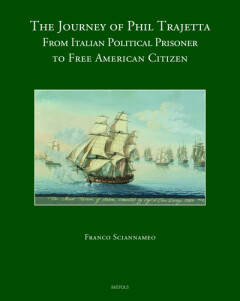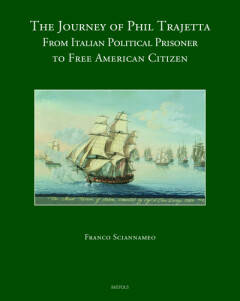
- Afhalen na 1 uur in een winkel met voorraad
- Gratis thuislevering in België vanaf € 30
- Ruim aanbod met 7 miljoen producten
- Afhalen na 1 uur in een winkel met voorraad
- Gratis thuislevering in België vanaf € 30
- Ruim aanbod met 7 miljoen producten
Zoeken
The Journey of Phil Trajetta
From Italian Political Prisoner to Free American Citizen
Franco Sciannameo
€ 121,90
+ 243 punten
Omschrijving
This new monograph synthesizes and contextualises the details surrounding the life and work of Filippo (Phil) Trajetta (Venice, 1776 - Philadelphia, 1854), son of celebrated opera composer Tommaso Trajetta (often spelled Traetta). The volume has been designed to call the attention of musicologists and practitioners alike, to a neglected master who valiantly contributed to the development of music in America at a crucial junction in the Country's history: the period between American post-Revolution years and the threshold of the Civil War. The amount of literature written about music in ante-bellum America is extensive and accurate; however, Trajetta's name and activities barely receive a cursory mention. Phil Trajetta, patriot, musician, and immigrant deserves better. His literal and existential journey from political prisoner in Naples during the fall of the short-lived Neapolitan Republic to a free American citizen, speaks volumes about his status as one among the very few fully accredited professional European musicians to establish themselves on this side of the Atlantic. In America, Trajetta created, or was instrumental in creating, three important music schools: The American Conservatorios of Boston (1801), New York (1820), and Philadelphia (1828). The American Conservatorio of Philadelphia, which kept its doors opened for over 20 years, became Phil Trajetta's ultimate 'raison d'etre'. There, as the leader of the Conservatorio's orchestra and chorus which included students, friends, and professionals, Trajetta produced his major orchestral/choral compositions, and wrote fundamental pedagogical treatises.
Specificaties
Betrokkenen
- Auteur(s):
- Uitgeverij:
Inhoud
- Aantal bladzijden:
- 287
- Taal:
- Engels
- Reeks:
- Reeksnummer:
- nr. 20
Eigenschappen
- Productcode (EAN):
- 9782503615653
- Verschijningsdatum:
- 19/12/2024
- Uitvoering:
- Hardcover
- Formaat:
- Genaaid
- Gewicht:
- 2608 g

Alleen bij Standaard Boekhandel
+ 243 punten op je klantenkaart van Standaard Boekhandel
Beoordelingen
We publiceren alleen reviews die voldoen aan de voorwaarden voor reviews. Bekijk onze voorwaarden voor reviews.








